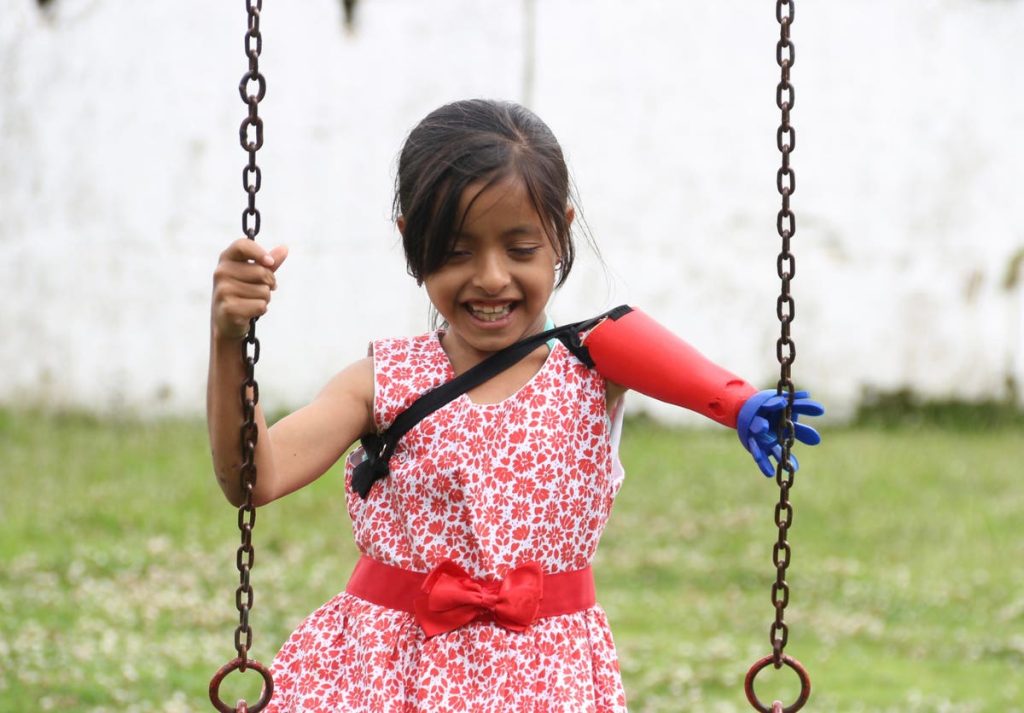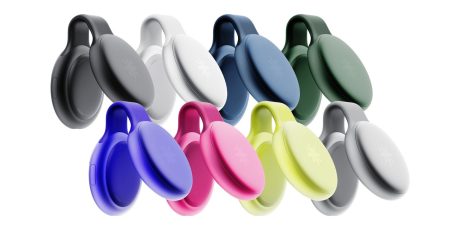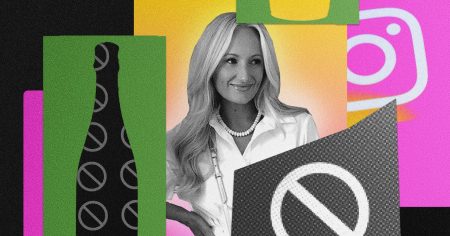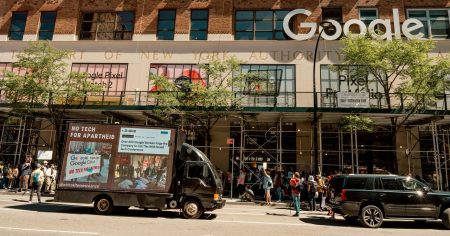An estimated 10 million people in the world wear prosthetic devices. While these devices offer increased mobility and quality of life, limited options and sky-high prices have stalled their promise. Fran Díaz started Autofabricantes in Spain in 2015, seeing in 3D printing an opportunity to revolutionize the way prostheses and orthopedic supports are designed. Now with a footprint on three continents, Autofabricantes meets the needs of users, particularly children, by offering flexibility and lower costs. Ashoka’s Irene Milleiro talks with Díaz about why design should start with users, how to create collaborative environments, and the implications of his approach for health care broadly.
Irene Milleiro: Fran, you are working to transform the prosthetics industry, especially children’s prostheses. Tell us about the options that existed before you began.
Fran Díaz: In most of the world, prostheses are one-size-fits-all. A prosthetic device is one of the most intimate things a person could wear and use, and yet the industry isn’t accounting for individual preferences and aspirations, or special needs. Users are not routinely consulted about design and production. On top of that, prostheses are expensive: at least 20,000 euros per device in Spain. So there’s an accessibility problem, in addition to an adaptability problem.
Milleiro: What’s the difference between Autofabricantes and other orthopedic companies?
Díaz: One crucial thing sets our approach apart. It’s not our 3D printing technology, because that’s now available in many places; it’s our decision methodology. We invite our users to be part of our team, with specific protocols that include them in design and production. The prosthesis ends up being much more effective and life-improving, because it has been designed for the user, by the user. Of course we have a huge team of professionals, including engineers, designers, and therapists, but the people who use the prosthetics — whether they are 5 years old or 50 — are the experts at the heart of our process. And together we are developing these prostheses in open code, so that people around the world can access and download the designs.
Milleiro: Tell us a story about an Autofabricantes user.
Díaz: We have lots of stories! One is about a quiet, shy little boy named Leo who came into our workshop. We asked him questions about the design, and he picked out his own colors. After he had gone home with his new prosthesis, his mother wrote to us that Leo had arrived to school, announcing to all, “Look at my new hand!” All his classmates wanted to have a hand like Leo’s, because it was so colorful and cheerful. The change in Leo’s sociability was like day and night.
Milleiro: What are some common misconceptions that the industry has about prostheses and their users?
Díaz: When we speak about prostheses, people imagine a regular, skin-colored hand. But when we ask children what they want, they don’t say, “I want a hand.” They say, “I want to play basketball, or jump rope, or grab my bike handles.” The solutions we develop often involve a standard part that connects to interchangeable attachments, often designed by the kids, that allow children to do the activities they love. For example, an attachment for playing video games that has two special buttons that the child can use to play comfortably. Another attachment for swimming. Another for playing electric guitar. For swinging. And so on. We have around 35 attachment designs right now.
Milleiro: Fran, when you were young, you loved chess and fixing appliances at home. What started you down the path of designing prosthetics?
Díaz: Ha! It was later in life, when I was finishing my architecture degree and had been working with 3D printers for several years. Two of my friends in the industry told me that their baby was going to be born with one arm. The health system in Spain would decide what kind of prosthesis and treatment the baby girl would receive. So we started thinking about what we could do to help her lead the most autonomous life possible. We researched other projects that were going on elsewhere — such as Enable the Future in the United States. And then we started to see that there was something bigger behind it, that other families had the same concerns about prostheses, because the health care system and the market were not addressing their child’s needs.
Milleiro: When you design the prostheses with kids, how do you engage them?
Díaz: That’s a beautiful question. We always try to gain their trust, so they feel safe to speak about what they imagine for themselves. For example, in the workshop, there are lots of tables, but the table at the center is a meeting point with food and drinks and games. It’s a place for the whole team, including the child, to get to know each other. We try to create emotional links beyond the three or four days that we spend together in the workshop.
Milleiro: So you’ve worked in Spain for several years, with over fifty families, but you’ve also started projects in Mexico and Colombia. What have you learned?
Díaz: In 2018, we arrived in Colombia, where we were working alongside NGOs and government organizations to address the armed conflict. We didn’t know much about the local ecosystem, but we shared information with local groups who wanted to set up a team like the one we have in Madrid, and we started to get a clearer picture of what partnerships we needed for the project to flourish. This allowed us to improve our expansion efforts; for example, we now have a permanent team in Mexico, and we’re working on another in Uruguay. We operate with other community organizations, helping them conduct clinical studies and long-term assessments.
But affecting global change is not always about being physically present. Any team can download our designs online for free. They’ve been downloaded at least 3,000 times, and we’ve received feedback from Asia, Latin America, different parts of Africa, from all sorts of people and communities who want to use these designs. We sometimes send additional information so that they can incorporate them in their catalogs.
Milleiro: What kind of support is Autofabricantes looking for — going forward?
Díaz: We are looking to connect with more public institutions and civil associations that can integrate these solutions in public health approaches in Spain and globally. We’re also looking for funding for clinical research trials to support our development. Universities, public institutions, and private sector groups can all help in that respect.
Milleiro: And beyond the field of prosthetics, what is your big vision for the health care system?
Díaz: We ultimately want the healthcare system to learn from the positive impact of our approach and to adopt the principles. In many parts of the world, it’s still considered normal for patients to never be consulted about their treatment. Our goal is to normalize an inclusive approach in the decision-making process. There are beautiful projects in different parts of the world working towards this goal. There’s one in Paris, working with Huntington’s disease, and I encourage everyone to read their manifesto. We will keep developing tools, opening minds, and making knowledge available for everyone. But we need our public institutions to also champion this new and inclusive vision.
Fran Díaz is the founder of Autofabricantes and an Ashoka Fellow. Irene Milleiro leads Ashoka in Spain.
Read the full article here









